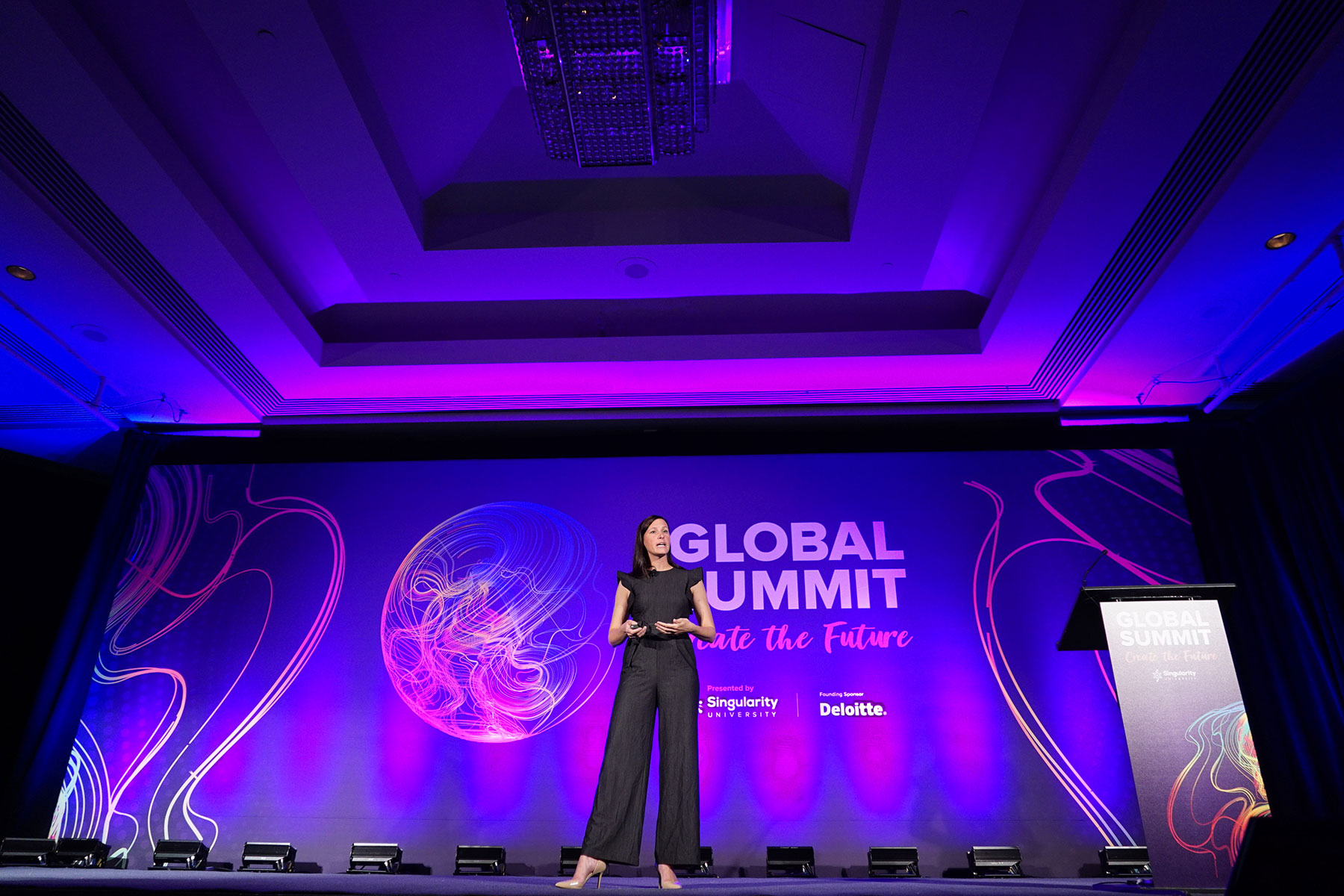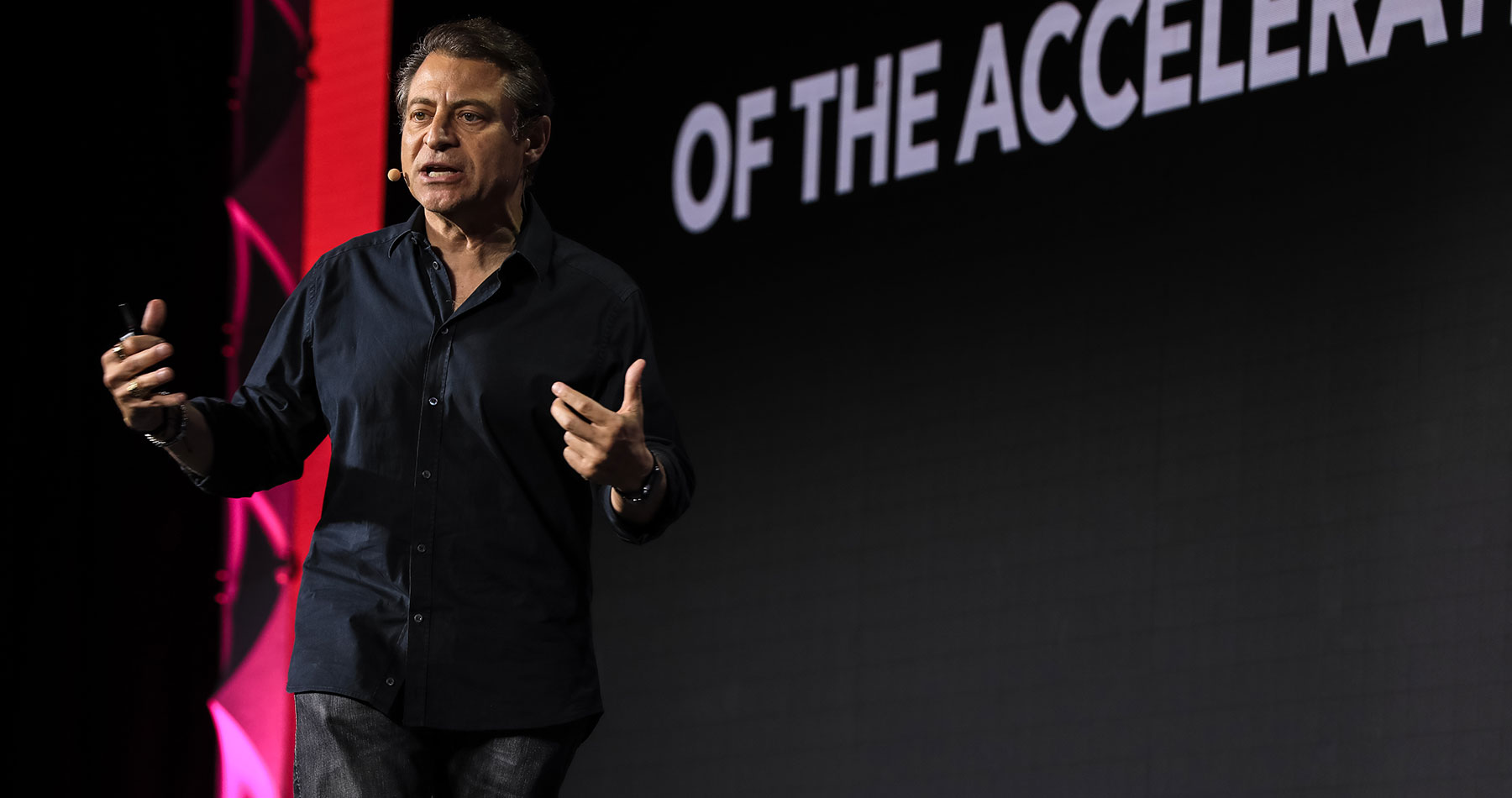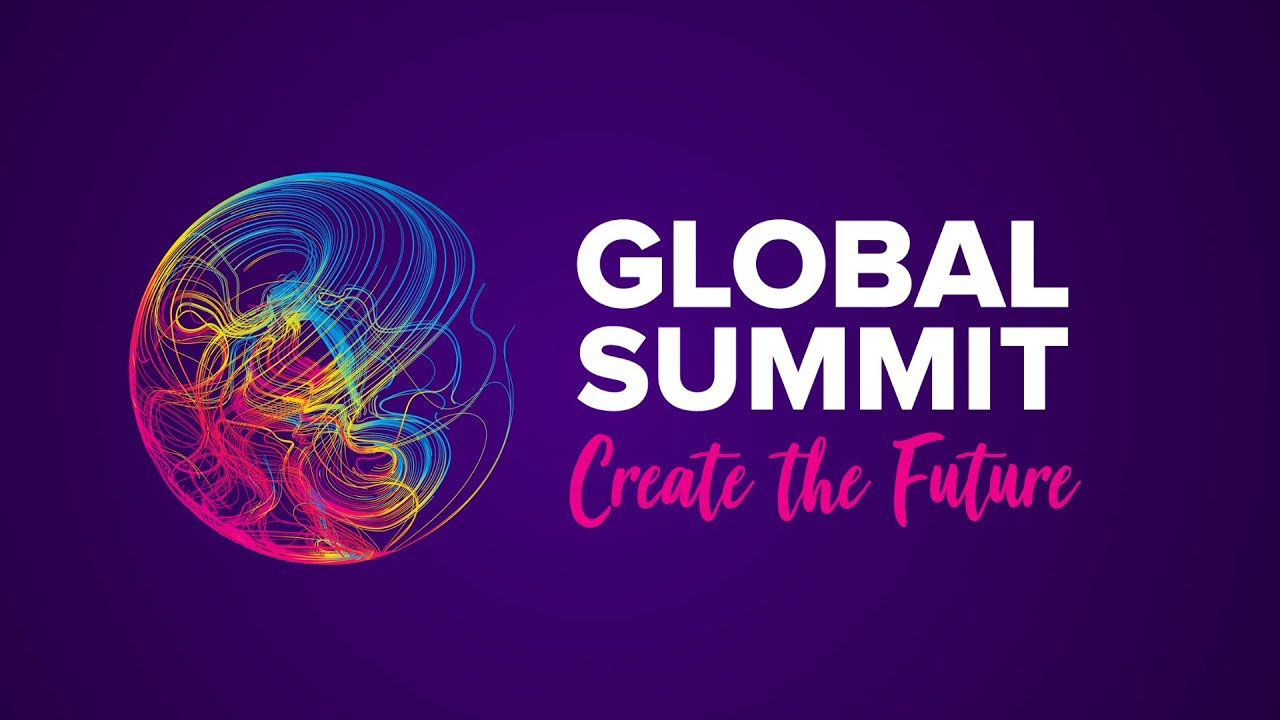



I remember listening to a panel at MUTEK, a global touring electronic music & arts festival, and the speaker asked us all what we thought was the greatest existential threat to humanity. She said most of us were probably thinking of climate change, I was not. While they might be right about climate change, the first thing that popped into my head was the dissemination of information. It greatly affects all other issues. It influences our world view and on a global scale shifts elections, shapes our political and social response to climate change, and everything in-between.
Singularity University recently held their annual Global Summit in San Francisco and I’ll I want to talk about is the XPRIZE panel. XPRIZE holds competitions to see who can come up with ways to solve the world & humanity’s biggest problems and award millions to the winners. The first XPRIZE was put together by Peter Diamandis, who founded XPRIZE in the late 90’s.
Adults always ask kids, “what do you want to be when you grow up?” I always felt like an astronaut was a pretty stereotypical but bold claim for a kid to make. Peter followed that childhood dream and when NASA didn’t seem to be a viable option, he built a $10 million competition for the first team to build a working commercial spaceship, which was awarded to Burt Rutan in 2004. Peter hasn’t made his dream into space yet, but it seems right on the horizon.
XPRIZE’s panel at the Global Summit felt like a bunch of superheroes on stage. They’re creating new competitions in areas including adult literacy, removing carbon from the air, using ai on a number of issues, and over a dozen other prizes that have already been paid out. One thing they haven’t tackled, however, is still my greatest concern.

My life’s work
Going to conferences like Global Summit, I always have one mission in mind, how to help make content discovery better. This is what can help solve the problem of how well information is disseminated. There wasn’t much discussion about ai and recommendation systems. So I thought I’d take what I’ve learned in curating music and apply it to podcasts, specifically in science, technology, and the future. I chose podcasts because they have some of the richest stories coming out right now, but this process could be applied to any other type of content that can get pushed to email or whatever else, including newsletters, Google Alerts, YouTube Channel subscriptions, etc.
I went through the 418 podcasts I subscribe to, which put out around 1,000 episodes in August and cut it down to just under 90 episodes that had the future in mind. I finished around half of the 90 podcast episodes. There were a good handful of factors to include in deciding what episodes to highlight. Simply put, I was looking for the most meaningful stories and conversations that I could take some value out of and apply it to my own life. And hopefully the lives of others.
One thing I wanted to note before we get to the highlights. I’m not that well versed in science, technology, and the future, but if I were to continue to iterate each month and dive further into the subjects, after a good 10,000 hours or so I’m sure I could provide much more value to others. For now, I’ll stick to music. Although I’m building up my hours in some other areas of podcasting.
The Future vs. The Future | Design Tomorrow
In Design Tomorrow’s podcast episode, “The Future vs The Future,” Chris Butler makes the case of why the Roomba may be the perfect representation of the future. The Roomba combined innovations the Dyson brought to vacuums and paired it up with Google’s understanding of what an algorithm can offer us. More importantly, it was a great example of how “every vision of the future is a better index of the present from which it came than whatever time it imagines.” The 1960’s The Jetsons imagined robots would be using vacuums rather than a robot actually being one. Chris goes into other examples of how the past’s grand vision of the future can get some things right, but some obvious things wrong. From architects like Buckminster Fuller’s 1945 Dymaxion house to 1989’s Back to the Future Part II’s use of the fax machine.
Keoki Jackson: Lockheed Martin | Artificial Intelligence (AI) Podcast
“So now, let me give just a couple hypotheticals. So, people react sort of in the second time-frame, right? Your photon hitting your eye to movement is on the order of a few tenths of a second kinds of processing time. Roughly speaking, computers are operating in the nanosecond time-scale. So just to bring home what that means, a nanosecond to a second is like a second to 32 years. So seconds on the battlefield in that sense literally are lifetimes.” [35:00]
Cause & Effect with Judea Perl | Making Sense with Sam Harris
“Millions of people died as a result of that. But eventually it was resolved by a commissioner. And the Surgeon General came out with a statement that it does cause cancer. And the way it came about was interesting, they looked into the plausibility argument. And all they calculated, the degree to which hidden genetic factors will have to change your craving for nicotine and that made it impossible, or implausible. That if you have this genetic factor that you’re 8x more than if you didn’t have it. They don’t have any mechanism between a genetic factor that will make this craving plausible. That was a key for the consensus they came out with and things have been different since.” [44:35]
Generation Climate Change | The Ezra Klein Show
“There’s this lady named, Erica Chenoweth, who has done a lot of studies of social movements throughout history that have overthrown dictators and things like that. And she found that if 3.5% of a population gets active on a particular issue – that means they’re voting, they’re donating, they’re out in the streets, they’re talking to the neighbors on the issue – that movement inevitably wins. So 3.5% of the population in America would be about 11 million.” [30:05]

What’s the point of life?
Other than trying to figure out this misinformation problem, I go to conferences to meet people. Alcohol helps, but it’s something that shouldn’t be relied upon. What’s the point in meeting people if you can’t remember what you talked about. I’m also not very sharp drunk.
I met a woman from Nigeria at the party after the second day of the summit. We had drinks, bantered with others, and even silent disco’d. But the real conversation didn’t come until after.
I found her the next day right after the summit concluded. We talked for a few hours with another young woman about the effects of alcohol. We went deeper into other substances and the positive effects of connecting with other people that are not-so-much like yourself from places around the world. It was honestly the highlight of my conference.
Whether it’s conferences, festivals, or just a podcast, in the end, the goal is always to connect with another person and their story.